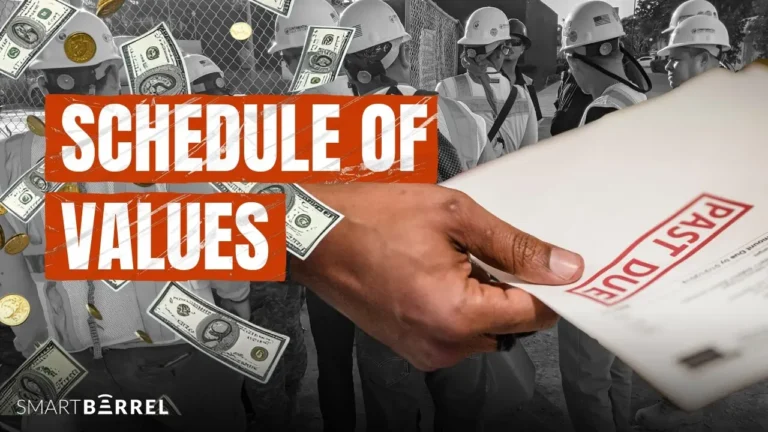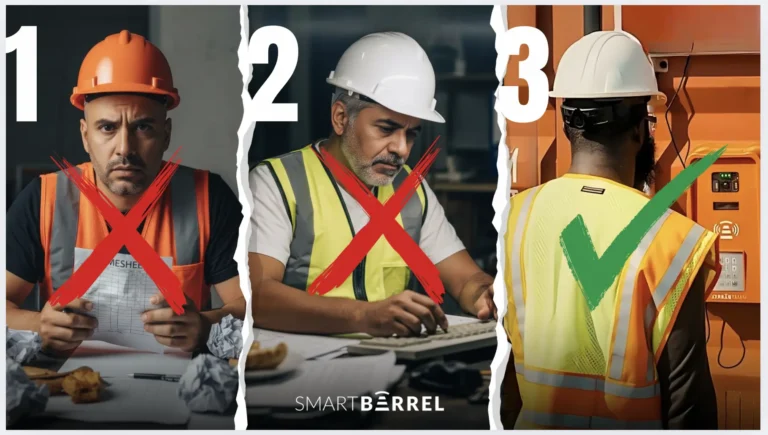New York Senate Bill 2766-C, passed by Governor Kathy Hochul in September 2021, would hold construction contractors liable for all claims under Section 198(e) of the New York Labor Law (NYLL), with joint-employer status automatically imposed on general contractors and subcontractors.
You may be wondering: how does this wage theft law affect contractors? What can contractors do to abide by this law properly, and what tools can they use to help them?
Here, we go over the basics of this NY wage law, what contractors should do to avoid being held responsible for wage theft, and how the SmartBarrel device can help you remain compliant with local regulations.
What is New York Senate Bill 2766-C?
Having taken effect on January 4th, 2022, this law aims to curb wage theft in New York by holding general contractors liable for non-payment of wages if a subcontractor can’t or doesn’t pay their employees.
It applies to construction contracts entered into, renewed, modified, or amended on or after the effective date. The period for claims against general contractors is limited to three years.
But as an addition to the New York General Business law, under section 756(f), a general contractor is authorized to withhold payments owed to subcontractors who fail to pay their construction workers, or fail to provide any necessary payroll information, including:
- the names of workers on a given project, including any independent contractors;
- the payments of wages and benefits;
- the dates of work for all employees;
- the scheduled duration of work; and
- certified payroll records
Note that under the law, a contractor’s joint liability cannot be waived by agreement or release, except through a collective bargaining agreement.
The reasoning behind New York Senate Bill 2766-C lies in the fact that general contractors are considered to have more financial resources than subcontractors, and would thus be able to compensate workers where the subcontractor falls short.
It’s also assumed that general contractors have more hands-on experience managing operations, and would reasonably be held responsible for unpaid wages.
The penalty for violating NY wage laws can include monetary fines for unpaid wages and damages.
So what should a general contractor do?
Here are some procedural safeguards and processes that general contractors should consider incorporating into future contracts to avoid being troubled by this wage theft law.
Make sure to include the following provisions in contracts with subcontractors:
- An agreement by the subcontractor to pay all wages and benefits, with wage supplementation, to their project employees on a timely basis.
- An agreement by the subcontractor to comply with other applicable federal, state, and local wage-hour laws, in addition to any benefit laws.
- An agreement by the subcontractor to provide certified copies of the payroll records.
- An agreement by the subcontractor to certify that the upstream contractor complies with such laws and obligations.
Now more than ever, it’s also incredibly important to have clarity regarding who is on your job site to circumvent wage theft in NYC.
Currently, many general contractors are manually tracking manpower on the job site. This process usually involves a superintendent walking around and recording it on a clipboard, or subcontractors providing the number of workers on the job site through an app, organized by trade.
But with the SmartBarrel device, not only can you track headcount and manpower, but you can see every worker and their information, including their first name, last name, and the exact hours they’ve worked, recorded through biometric facial verification.
Having this data available as a general contractor is essential to reduce liability, as well as for comparison purposes and record keeping. The data is available to you for as long as you need it.
What should a subcontractor do?
This wage theft law affects not only general contractors but also subcontractors and sub-subcontractors. With more rigorous reporting required of contractors, subcontractors should do everything in their power to ensure they’re abiding by the law to avoid being penalized.
One of the main courses of action you can take is to become educated and informed on existing labor laws, especially regional requirements for compensating workers. Ensure all workers are properly classified by trade, communicating deadlines appropriately.
Another precaution you can take is ensuring that all of your payroll records are in order. Even if it’s not specifically mentioned in a contract agreement, when a general contractor requests payroll records, you’re legally required to provide them in a timely manner. Making collecting and producing these payment documents a habit can help you avoid liability.
The SmartBarrel device makes collecting, distributing, and accessing payroll information much easier. By automating timekeeping and time card processes, the device provides you with reliable and accurate data that can be exported at any time to accounting.
You can also integrate and link to existing ERP solutions to streamline the payment process, making SmartBarrel an end to end construction workforce management solution.
SmartBarrel: A modern and intelligent solution
While the constant introduction of new wage theft laws can be difficult to keep up with, there are ways to ease you and your team effortlessly into the transition.
SmartBarrel improves construction labor management with convenient features to reduce liability. General contractors and Subcontractors benefit from better manpower tracking and data-driven time tracking solutions, with the SmartBarrel device providing you with automated headcounts, accurate hours worked by employee, advanced reporting, simple payroll rules configuration, and seamless accounting software integrations.
Make your job easier and more efficient whether you’re a general contractor or subcontractor with the following benefits:
General contractors benefit from:
- Accurate Manpower Tracking
- Hours for all works on the jobsite verified by biometric facial verification
- Automated Daily logs
- Work summaries collected through SMS
- Incident reporting
- Communication with workers via SMS
- Access to information about any worker onsite
Subcontractors benefit from:
- Accurate hours for all employees verified by biometrical facial verification
- Occupation tracking
- Cost Code tracking by shift
- Easy to access reports
- ERP and payroll integration
With SmartBarrel helping you improve construction workforce management, you can rest assured knowing that you’ll be covered at every turn.
Ready to take your job site into the future? Book a demo with SmartBarrel today!






